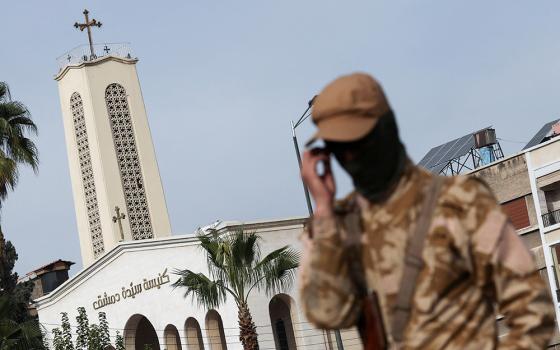We have just come out of the Jan. 18-25 Week of Prayer for Christian Unity, and are heading into the Feb. 1-7 Interfaith Harmony Week put in the calendar for annual observance in 2010 by the General Assembly of the United Nations. How are the two different?
The question is real in the minds of many. During the Week of Prayer for Christian Unity I led a five-day retreat on the theme of "Together in Christ." Although the primary focus was on the importance of an increasingly more visible unity among us as Christians, given the tensions in the world today between people of different religions, towards the end I devoted a few of our conference sessions to interreligious relations as well.
In doing so, the questions from participants indicated a fogginess concerning the difference between the goals of work for Christian unity and the goals of interreligious dialogue. In the exchanges, some referred to other denominations of Christian faith as "other religions."
But Lutherans, Presbyterians, Baptists, and Evangelicals are not "other religions." They are simply traditions of faith in the religion called Christianity. Denominational names like Roman Catholic, Anglican, Orthodox, Pentecostal are all adjectives. The noun is "Christian," and grammatically the noun is called the substantive in the sentence because that’s where the most substance is. It’s not in the adjective or qualifier.
The substance of our Christian faith is expressed in the Nicene creed and that substance is embraced by every denomination of Christian faith. These different denominations represent the variety of traditions in that one faith, so it is not appropriate to think of them or refer to them as "other religions." We are all members of the same world religion called Christianity.
But while our unity with one another through our common baptism into the one body of Christ is real, it is also incomplete. In 1991, the Assembly of the World Council of Churches in Canberra, Australia, described the marks of what it called "full communion:"
The common confession of the apostolic faith; a common sacramental life entered by the one baptism and celebrated together in one eucharistic fellowship; a common life in which members and ministries are mutually recognized; and a common mission witnessing to the gospel of God’s grace to all people and serving the whole of creation.
It further specified that full communion would be expressed on the local and universal levels of the church through councils and synods. In other words, we would also make important decisions together. These are the goals of the movement called "ecumenical." The very word comes from the Greek word "oikumene" referring to the whole faith of the church as opposed to that which is partial.
How is this unity different from what we seek with those who genuinely do belong to other religions -- Jews, Muslims, Hindus, Buddhists? We do seek unity and solidarity with them, but the bar is raised less high. The goals of interreligious or interfaith relations are mutual understanding and respect, with collaboration in meeting the challenges we commonly face in the society and world in which we live.
Analogically, a way of putting that would be that other Christians are members with us of the one body of Christ by virtue of our common baptism. And members of other religions are brothers and sisters in the human family, but not members of the particular body of which we are a member, the body of Christ.
To be sure, there is a level of intimacy and solidarity with all our brothers and sisters, but the intimacy and solidarity we have with other members of our own body is of a special nature and even deeper.
Think of it in terms of the difference between your relationship with your own arm or leg and your relationship with other members of your family. Both are special, no question, but the level of connection you have with the members of your own body is deeper, more personal and more intimate.
And the body that we are -- the body of Christ -- has been given a special mission in the midst of the human family: to witness to God’s love for all by responding as Jesus did to their concrete social needs by caring for the sick, clothing the naked, feeding the hungry, giving drink to the thirsty, visiting the imprisoned, and burying the dead.
Jesus has opened the gates of heaven to all, even to those who do not know him. And the Holy Spirit is at work at large in the world to turn hearts to God. Those who make up the body of Christ are called and sent to share the good news of God’s love for all. To witness to what God has done for us all. And to share God’s call to us all to live as brothers and sisters, members of God’s one human family.
Ecumenism and interfaith harmony are certainly related, but they are distinctive movements, each with its own goals.
[Community of St. Paul Fr. Thomas Ryan directs the Paulist North American Office for Ecumenical and Interfaith Relations.]

